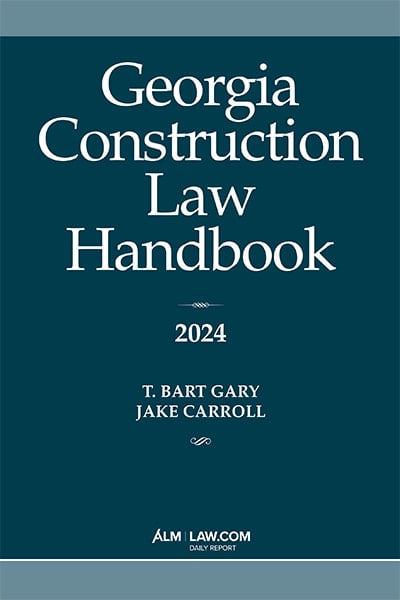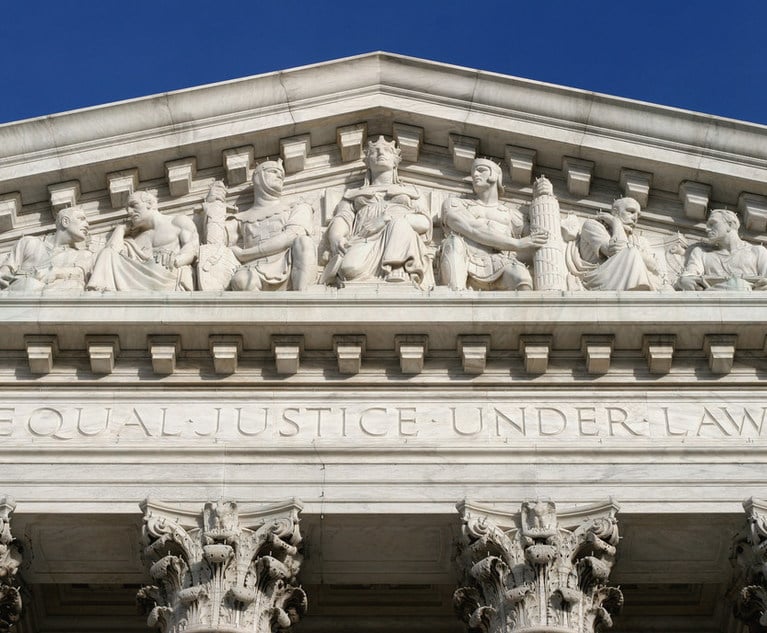0 results for '*'

A Debtor's Failure to Properly Schedule a Debt in an 'Asset Case' Renders That Debt Nondischargeable
In a recent published decision, the U.S. Court of Appeals for the Ninth Circuit addressed a previously unresolved question in that circuit: whether a debtor's failure to properly schedule a debt in an "asset case" renders the debt nondischargeable.
Are You For Real? Dealing with the Proliferation of Deepfakes
Notwithstanding the significant threats facing companies as a result of deepfake technology, there are several things companies can do to protect themselves and their employees from becoming the victim of a deepfake scam.
People in the News—June 24, 2024—Maiello Brungo, Dilworth Paxson
Maiello Brungo & Maiello announced that the firm has recently welcomed attorney Sarah Jane Milliron.
How I Made Partner: 'Begin to Build a Personal Brand,' Says Courtney Quiros of Alston & Bird
"Associates should also begin to build a personal brand by specializing in a subject matter area early on and credential themselves by writing articles with more senior lawyers and looking for speaking opportunities within that practice area."
Morris James IP Litigators Contribute to New Book on Biosimilars Litigation
Morris James intellectual property attorneys Kenneth Dorsney and Cortlan Hitch have edited and contributed to the newly published book "Biosimilars Litigation and Client Counseling," which is available through the American Bar Association.View more book results for the query "*"


Ending Forced Arbitration of Sexual Assault and Sexual Harassment Act—It Doesn't Always Apply
The Ending Forced Arbitration of Sexual Assault and Sexual Harassment Act (EFAA) was a big deal when, on March 3, 2022, it became law. Like most laws, it had its 15 minutes of fame and then faded away from general discussion. The EFAA provides that employers no longer can force claims of sexual harassment and/or sexual assault into arbitration. Simple enough, right? Not even close.
Arbitration Analysis: Decision to Rehire After an Armed Standoff
Reinstatement without any penalty or limitations was a violation of public policy.
Supreme Court Agrees to Review Constitutionality of Tennessee's Ban on Trans Care for Minors
A key dispute in the case is what level of constitutional scrutiny to apply to the state's law: a rigorous form known as "heightened scrutiny" or a more lenient type of "rational-basis" review. The circuit court applied the latter and found that the state could rationally concluded that SB1 was an appropriate response to risks from puberty blockers and hormone therapy.
Execs Doubt AI Regulation Can Keep Up With the Technology's Rapid-Fire Advances
"More and more, we're seeing a gap between what outside counsel recommends and what executives are open to when it comes to AI policies and procedures," said Amy Worley, associate general counsel of Berkeley Research Group.
Trending Stories
Featured Firms
Law Offices of Gary Martin Hays & Associates, P.C.
(470) 294-1674
Law Offices of Mark E. Salomone
(857) 444-6468
Smith & Hassler
(713) 739-1250
More from ALM
- Scan In Progress: Litigators Leverage AI to Screen Prospective Jurors 1 minute read
- Legal Speak at General Counsel Conference East 2024: Match Group's Katie Dugan & Herrick's Carol Goodman 1 minute read
- Legal Speak at General Counsel Conference East 2024: Eric Wall, Executive VP, Syllo 1 minute read
Resources

Aligning Client Needs with Lawyer Growth and Profitability
Brought to you by BigHand
Download Now

Technology to Make E-Discovery Smarter, Not Harder
Brought to you by Nuix
Download Now

Does Generative AI Have the Power to Transform Legal Services?
Brought to you by HaystackID
Download Now

International Export and Trade Assistance State Law Survey
Brought to you by LexisNexis®
Download Now



